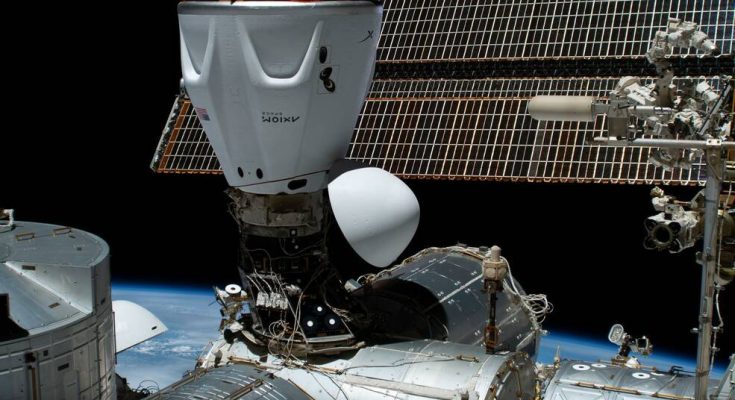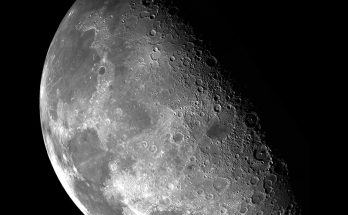#NASA; #AxiomSpace; #SpaceMission
NASA and Axiom Space have signed an order for the fourth private astronaut mission to the International Space Station, targeted to launch no earlier than August 2024 from the agency’s Kennedy Space Center in Florida.
“I am pleased to see another milestone in our efforts to transition low Earth orbit from primarily a government-sponsored activity to one where NASA is one of many customers,” said Phil McAlister, director of commercial space at NASA Headquarters in Washington. “NASA has been directed to develop commercial platforms to sustain a continuous United States presence in low Earth orbit and to transition beyond International Space Station operations. These private astronaut missions are helping to pave the way for that transition.”
Axiom Mission 4 (Ax-4) is expected to spend up to 14 days docked to the space station. A specific launch date depends on overall spacecraft traffic to the orbital outpost, and other planning constraints. NASA and Axiom Space mission planners will coordinate in-orbit activities for the private astronauts as they work with station crew members and flight controllers on the ground.
“Our Axiom Space team is looking forward to a fourth mission to the International Space Station,” said Michael Suffredini, CEO and president of Axiom Space. “Each mission allows us to build on the foundation we have set for the world’s first commercial space station, Axiom Station, preparing our teams and orbital platform to succeed the International Space Station operations in low Earth orbit. These missions are instrumental in expanding commercial space activities and access to space for individuals and nations around the world, as well as developing the knowledge and experience needed to normalize living and working in microgravity.”
Axiom Space will submit four proposed crew members for the Ax-4 mission to NASA and its international partners for review. If approved, the prime crew members for the mission will be confirmed.
The Ax-4 crew members will train with NASA, international partners, and SpaceX for their flight. Axiom Space has contracted SpaceX as launch provider for transportation to and from the space station, and to familiarize the private astronauts with systems, procedures, and emergency preparedness for the Dragon spacecraft.
Axiom Space is obtaining NASA services via both a mission-specific order and a reimbursable Space Act Agreement.
Through the mission-specific order, Axiom Space is obtaining from NASA crew supplies, cargo delivery to space, storage, and in-orbit resources for daily use. The order also accommodates up to seven contingency days aboard the space station. This mission is subject to NASA’s pricing policy for the services that are above space station baseline capabilities.
The order also identifies capabilities NASA may obtain from Axiom Space, including the return of scientific samples that must be kept cold and other cargo, and the capability to use the private astronaut mission commander’s time to complete NASA science or perform tasks for the agency.
Through Space Act Agreements, Axiom Space will reimburse NASA for services to enable the mission, such as training for crew members and use of facilities at NASA’s Johnson Space Center in Houston and the agency’s Kennedy Space Center in Florida. In addition, SpaceX has a reimbursable agreements with NASA Kennedy for launch services.
NASA announced its selection of Axiom Space for the third private astronaut mission in March. NASA and its international partners are reviewing the proposed crew members now, and an announcement is expected later this year. The mission is now targeted to launch no earlier than January 2024.
NASA made the selection for the third and fourth private astronaut missions from proposals received in response to its September 2022 NASA Research Announcement and evaluated the mission proposals based on the provider’s ability to execute a mission successfully, NASA’s ability to support the proposed mission, and the mission’s contribution to the agency’s goal of low Earth orbit commercialization.
For more than 22 years, NASA has supported a continuous U.S. human presence in low Earth orbit. The agency’s goal is a low Earth orbit marketplace where NASA is one of many customers, and the private sector leads the way. This strategy will provide services the government needs at a lower cost, enabling the agency to focus on its Artemis missions to the Moon and eventually Mars while continuing to use low Earth orbit as a training and proving ground for those deep space missions.





